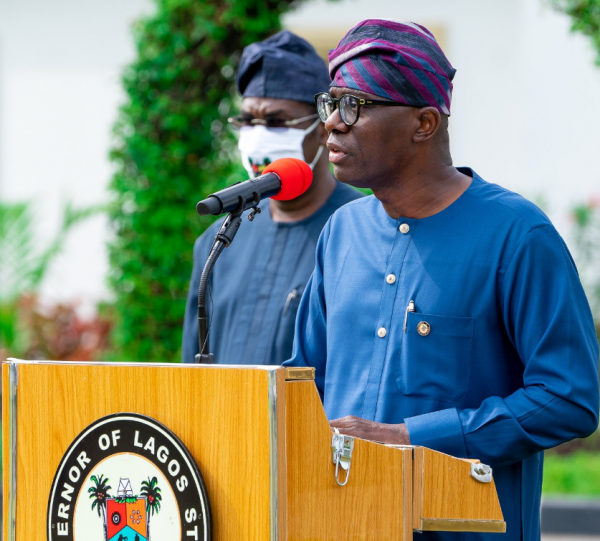Headlines
Lagos agrees to open Churches, Mosques gives conditions

BY NICHOLAS ABE
Lagos State Government says it has modified the protocols and guidelines recently announced by the Presidential Task Force (PTF) on COVID-19, which gave a regulated permission for resumption of business and religious activities across the nation as part of measures to ease the nationwide lockdown.
Governor Babajide Sanwo-Olu, on Thursday, granted partial relaxation of the prohibition placed on religious gatherings.
He said from June 19, Muslims can congregate for Jummat service only while Christian worshippers are allowed to gather only for Sunday services from June 21.
However, all the permitted religious activities must be conducted within the ambit of a set of new protocols for organised gathering rolled out by an inter-ministerial committee set up by the Governor and chaired by the Commissioner for Special Duties and Inter-Governmental Relations.
These developments were announced at the Governor’s 13th briefing held at the State House, Marina, Lagos.
The Governor emphasised that the pronouncement should not be taken as permission for full reopening of places of worship as their activities must be limited to obligatory worships only. He added that daily vigils and other extra-religious activities remained prohibited.
He said: “In line with the promise I made to you two weeks ago, I set up a committee with several Ministries chaired by the Commissioner for Special Duties and Inter-Governmental Relations, to draw up guidelines for the phased re-opening of organised gatherings in the State.
“We will, from June 19 and 21, 2020, be allowing all our places of worship to re-open for obligatory services only at the maximum of the 40 per cent of their capacities. These eased measures must be accompanied by physical distancing, mandatory temperature checks, use of face masks and strong personal hygiene.”
READ: COVID-19: Catholic Church slams Lagos over continued restriction
Sanwo-Olu prohibited “vulnerable” persons from participating in organised religious gatherings, saying houses of worships must consider the option of virtual platform for members below 15 years and above 65 years. Officiating priests above 65 years are exempted, but they must maintain appropriate social distance from the congregants.
The Governor directed that houses of worship must also maintain a “no face mask, no entry” policy throughout the duration of their activities. Periodic cleaning and disinfection of facilities, the Governor said, must be carried out on these religious facilities in line with public health guideline of the State.
He said: “Crowd capacity must be limited to no more than 40 per cent of the approved occupancy limit of religious centres by the State Government, with a maximum limit of 500 people irrespective of the size of the religious centre. We strongly advise members of the congregation to avoid food offerings (communion) when it is being shared from common dishes.
“Also, sharing of kettles during ablution is strictly prohibited. The decision to proceed, restrict, modify, postpone or cancel a worship service after a thorough risk assessment solely lies with the State Government. All places of worship must nominate a person who would liaise with the State Government to obtain a safety clearance for their premises.”
